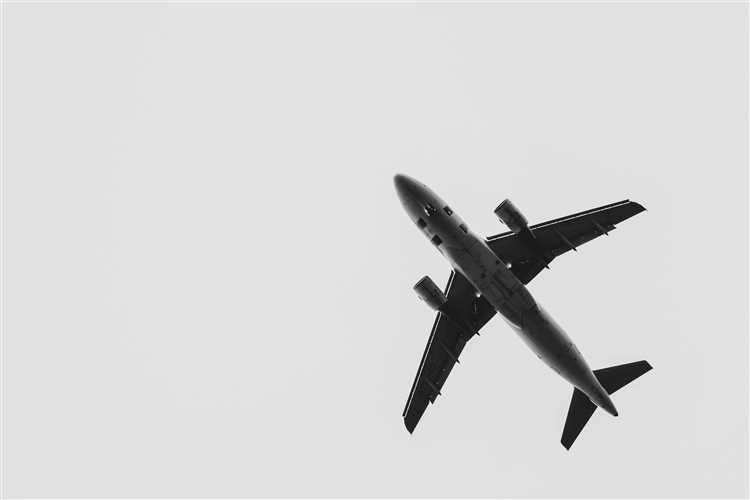
Booking an airplane ticket can often feel like navigating a maze, with countless options, fluctuating prices, and a variety of terms and conditions to consider. Whether you’re a frequent traveler or planning your first trip, a few smart strategies can make the process much easier and more affordable.
By understanding when to book, how to compare offers, and what factors influence ticket prices, you can ensure you get the best deal without compromising on comfort or convenience. Advanced planning, knowing how to use online tools, and considering alternative airports are just a few of the ways to streamline your booking experience.
In this article, we’ll walk you through essential tips that will help you book your next flight smoothly and avoid common pitfalls. From finding budget-friendly options to managing baggage policies, each step will guide you toward a stress-free journey.
How to Find the Best Airfare Deals
Finding the best airfare deals requires a mix of timing, research, and flexibility. One of the first steps is to monitor prices over time. Flight prices can fluctuate based on demand, seasonality, and even time of day. Use price alert tools on travel websites to track fares and get notified when a good deal becomes available.
Booking in advance often leads to better prices, but avoid booking too early. Typically, the sweet spot for purchasing tickets is around 6 to 8 weeks before departure. Keep in mind that prices tend to be lower on weekdays, especially Tuesdays and Wednesdays, as airlines adjust fares based on competition.
Consider flying during off-peak seasons or on less popular days. Weekends and holidays usually see higher demand, which drives up prices. Additionally, checking for alternative airports near your destination can often uncover lower fares, even if the airport is a bit farther from your final stop.
Another effective method is to use flight comparison websites. These platforms aggregate offers from multiple airlines, allowing you to see a wide range of options quickly. Make sure to clear your browser history or use incognito mode when searching for flights to avoid price hikes based on previous searches.
Timing Your Booking for Lowest Prices

Booking your flight at the right time can make a significant difference in the price you pay. Airlines use sophisticated algorithms that adjust fares based on demand, competition, and time until departure. Understanding these patterns can help you find the lowest possible price.
Studies suggest that the best time to book is usually between 6 and 8 weeks before your flight. During this window, airlines are more likely to offer lower fares, as they have a clearer understanding of demand. Booking too early or too late can result in higher prices, as airlines may either undercut or increase prices based on remaining seat availability.
In addition to timing your booking, the day of the week you purchase tickets can also play a role. It is often recommended to book flights on Tuesdays or Wednesdays for the best deals. Airlines tend to release fare discounts on Monday evenings, so by Tuesday afternoon, many of the lower-priced options are available.
Flexibility in your travel dates can also lead to significant savings. Flights that depart mid-week, especially on Tuesdays or Wednesdays, tend to be less expensive than those on weekends when demand is higher. Even shifting your travel dates by a day or two can reduce the cost of your ticket.
Lastly, it’s important to be aware of peak travel seasons. Flying during off-peak months, like early spring or late fall, often results in better deals, as fewer travelers are booking flights. Avoid booking during major holidays, as prices can skyrocket due to increased demand.
Understanding Airline Baggage Policies
Before booking a flight, it’s essential to familiarize yourself with the airline’s baggage policies. Each carrier has different rules regarding baggage size, weight limits, and fees for checked or carry-on luggage. These differences can impact your overall travel costs, so knowing what to expect can save you both time and money.
First, check the baggage allowance for your specific airline. Many budget airlines offer low ticket prices but charge high fees for checked bags, sometimes making the total cost of your trip more expensive than a flight with a higher initial fare. Be sure to verify whether your ticket includes a free carry-on or checked bag, or if there are additional charges.
It’s also important to understand weight and size limits for both carry-on and checked luggage. Airlines often allow a standard carry-on bag, but each carrier has its own size restrictions. If your bag exceeds these limits, you may face additional charges or have to check your bag. For checked luggage, weight limits typically range from 50 to 70 pounds, with fees for overweight bags.
Some airlines offer bundled packages that include checked baggage, especially on international flights. Consider purchasing these packages if you plan to check bags, as they can be more cost-effective than paying for checked luggage separately. If you only have carry-on bags, make sure to pack efficiently to avoid any additional fees.
Finally, consider any special items you may need to bring, such as sports equipment or fragile items. Many airlines have specific rules for oversized baggage, which can incur additional fees. It’s a good idea to check the airline’s website for detailed information and plan accordingly.
Choosing the Right Seat for Comfort
Selecting the right seat on an airplane can greatly enhance your overall flying experience. Comfort during the flight can depend on several factors, including seat location, legroom, and proximity to amenities. Understanding your preferences and the aircraft layout can help you make the best choice.
When choosing a seat, consider the following factors:
Another critical aspect is legroom. Some aircraft offer more space in certain rows, such as exit rows or bulkhead seats. These seats often come with additional legroom, but they may also have restrictions or higher prices. If space is a priority, these seats can provide significant comfort for long flights.
It’s also worth considering the proximity to key areas like the bathroom, kitchen, and emergency exits. Being close to the front can allow for quicker boarding and deplaning, while seats near the wings typically offer less turbulence.
Lastly, make sure to check the seat map when booking, as some planes may feature seats with more or less recline, especially on budget airlines. If reclining is important to you, try to avoid seats near walls or emergency exits where reclining might be restricted.
Using Comparison Websites Effectively

Comparison websites are a powerful tool for finding the best airfare deals. These platforms gather flight options from multiple airlines, travel agencies, and booking sites, allowing you to compare prices and choose the most suitable option. To get the most out of comparison websites, it’s important to use them strategically.
Here are some tips for using flight comparison websites effectively:
- Use multiple platforms – Different comparison sites may display slightly different results. Checking several websites like Skyscanner, Kayak, or Google Flights gives you a broader view of the available options.
- Set up price alerts – Most comparison websites allow you to set up alerts for specific routes. This feature notifies you when prices drop, helping you book when fares are at their lowest.
- Be flexible with dates – Comparison websites often offer a calendar view or flexible date search options, showing the cheapest days to fly. Shifting your travel by a day or two can lead to significant savings.
- Filter results effectively – Use the available filters to narrow down search results. You can select preferences like direct flights, specific airlines, or certain departure times to find the best match for your needs.
Additionally, keep in mind that some comparison websites may include hidden fees or display prices that exclude taxes. Always check the final total before booking to ensure that you are seeing the full cost of your flight.
Lastly, consider booking directly through the airline’s website once you find the best fare on a comparison site. Some airlines offer price-matching guarantees or additional perks like free seat selection or better customer service for direct bookings.
Ensuring Your Flight’s Flexibility and Refund Options
When booking a flight, it’s crucial to consider the flexibility and refund options available in case your plans change. Unexpected events, such as changes in your schedule or unforeseen circumstances, can lead to the need for alterations or cancellations. Choosing a flight with flexible terms can save you from significant fees or stress later on.
Here are some key points to keep in mind when ensuring your flight’s flexibility:
- Look for flexible ticket options – Some airlines offer tickets with flexible change policies, allowing you to modify your flight without incurring hefty fees. These tickets may be more expensive upfront but provide peace of mind if your travel dates change.
- Understand cancellation policies – Before booking, check the airline’s cancellation policy. Some airlines offer free cancellations within a certain time frame, while others may charge a fee or provide a credit for future flights. Be aware of the deadlines to qualify for any potential refunds.
- Consider travel insurance – If your plans are uncertain, purchasing travel insurance that covers cancellations and interruptions can be a wise decision. It can help you recover some or all of your costs if your flight is canceled due to reasons beyond your control.
- Check for refund eligibility – In some cases, non-refundable tickets can still be refunded if the airline cancels the flight or if there is a schedule change. Always verify the conditions for refunds and credits before booking to avoid surprises.
Additionally, many airlines are now offering more lenient policies regarding changes and cancellations, particularly after the disruptions caused by the COVID-19 pandemic. Some airlines allow free changes within a specific window, while others provide vouchers or credit for future bookings. Make sure to stay informed about any temporary policies that could apply to your ticket.
Lastly, always read the fine print when booking, as the terms for changes and cancellations can vary significantly between airlines and ticket types. Having clear expectations will help you navigate any unexpected changes with minimal stress.